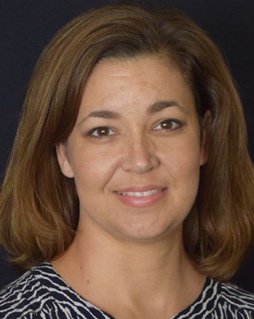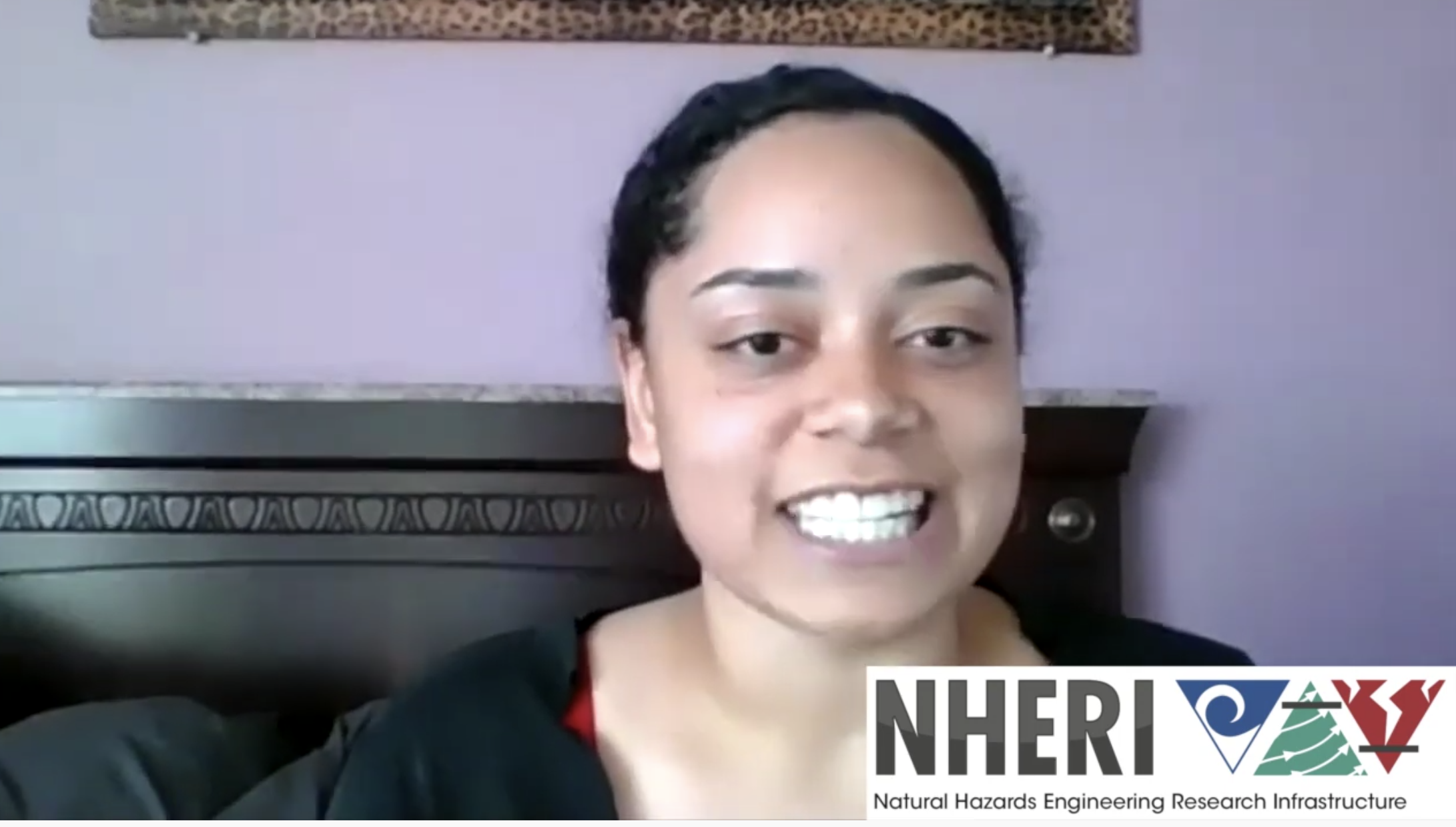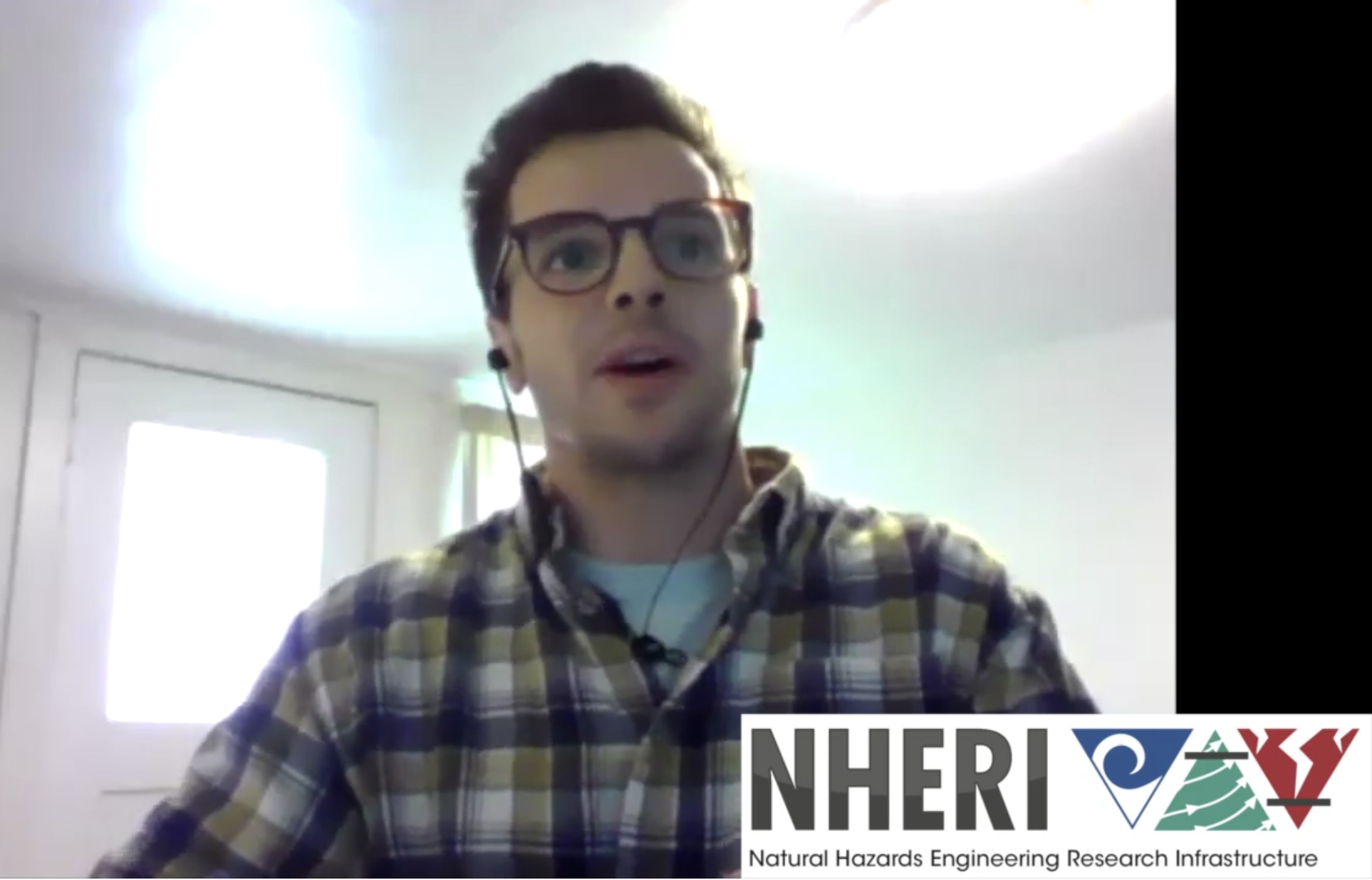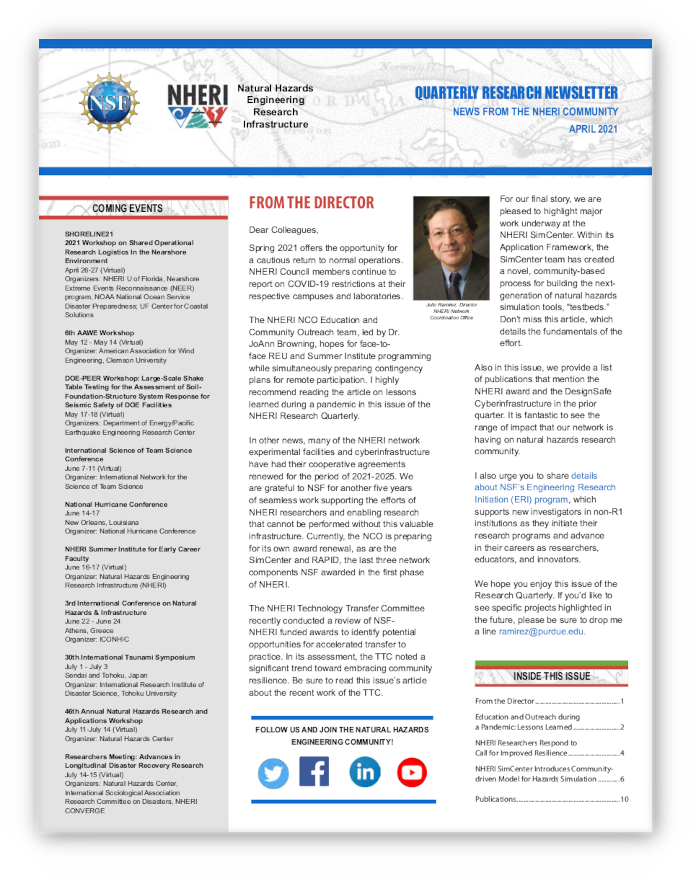Education and Outreach During a Pandemic: Lessons Learned
With strategic changes in 2021, the NHERI ECO team is creating safe, national-class learning opportunities
Published on April 8, 2021

JoAnn Browning
Dean of Engineering
University of Texas, San Antonio

Karina Vielma, EdD
NHERI Education and Community Outreach
Research Fellow and Educational Specialist
University of Texas, San Antonio

Robin Nelson, PhD
Educational Specialist,
NHERI ECO
One year ago, March 2020, NHERIs Education and Community Outreach team was completing arrangements for its annual Research Experience for Undergraduates program, the NSF-sponsored summer research program. Plans were on track to select 30 undergraduates who would travel to one of NHERIs experimental facilities and spend 10 weeks doing hands-on research in natural hazards engineering.
NHERIs core ECO team, based at the University of Texas at San Antonio, was working with the larger, network-wide Education and Community Outreach Committee to solidify curricula and logistics for each site. Facility mentors were planning ways to integrate students into their research. The University of Washington RAPID facility was preparing to host the NHERI-REU Research Symposium, the capstone event for REU students to present their research to the community.
Then the COVID-19 pandemic and quarantine hit. Suddenly, all plans for face-to-face events went out the window including the NHERI REU program.
The NHERI ECO immediately altered tactics. The core team worked intensively with the network-wide ECO committee to devise a virtual REU curriculum. We bonded over efforts to address the quarantine situation, said Karina Vielma, assistant professor of engineering education and chair of the ECO Committee. We tried shifting to virtual events at all our sites. But because our REU involves ten or more Experimental Facilities, at ten different universities and incoming students from all over the country it was tough to develop a manageable approach in so short a time-frame, she said.
The team prioritized objectives for each Experimental Facility program and devised innovative ways to meet those objectives through virtual events. Nevertheless, despite transparent and prompt communications about evolving policies at the universities involved, the team could not surmount the barriers. They were forced to cancel the 2020 REU.
Having to cancel our 2020 REU program was a blow, says JoAnn Browning, dean of engineering at UTSA and leader of NHERIs education and outreach efforts. The REU is a critical community-building and success-driving activity for NHERI constituents.
A VIRTUAL SUMMER INSTITUTE
Fortunately, NHERIs ECO team did have time to virtualize the 2020 Summer Institute, an annual program for introducing early-career faculty to NHERI faculty and network resources. Typically, 20-25 participants travel to San Antonio for the week-long event, and a smaller group attends online. The teams experience blending onsite and online programming, as well as the single event location, made logistics simpler for a purely virtual Summer Institute.
Participants at the 2020 Summer Institute were able to meet individually with NHERI site representatives and NHERIs NSF program director to discuss research proposals. Workshop-type sessions taught participants ways to engage NHERI network sites and leverage faculty expertise. NHERIs 2020 Summer Institute hosted 90 attendees for the two-day program, a significantly larger census than prior years.
Takeaways from the online-only event include:
- In the virtual environment, presentations must be concise.
- Seek interaction. It is crucial to participant engagement.
- Get creative online. Successful events must move beyond a simple Zoom meeting.
- A robust virtual experience can build a sense of community.
- A virtual program can accommodate more participants.
SUMMER INSTITUTE 2021
The team is hoping for an on-site event at the University of Texas San Antonio campus, which takes place June 16-17 this year.
Early career researchers who interact personally with NHERI community members gain great confidence in writing new grants to use our facilities and are more successful in gaining funding, and more likely to continue their careers in research and education, Browning said.
Lessons learned in 2020 are helping the ECO make contingency plans in case of COVID restrictions this year. The safety of faculty, staff, and attendees is paramount, so the NHERI ECO has plans for three scenarios: face-to-face, virtual-only, and a hybrid event.

2019 REU alum Stephanie Boggs did research at the University of Florida Experimental Facility. She graduated from Jackson State University in 2020 with a BS in Civil and Environmental Engineering and is now an associate project engineer at Lockheed Martin.
Stay current!
Connect with NHERI's Education and Community Outreach community online

2019 REU alum Joel Given did research at the NHERI UC Davis Experimental Facility. He is now a PhD student at Widener University.
NHERI REU 2021
This year, the ECOs challenge was devising a workable set of contingency plans for the networks multi-site REU program. Although information can be conveyed through virtual components, Browning and her team believe that personal, face-to-face interactions are the best way to foster confidence in young researchers.
When undergraduates directly interact with renowned NHERI researchers, they feel empowered, Browning said. And when physically located at one of our research facilities, they feel part of our research community, which encourages curiosity and builds confidence. Often, this translates into these students furthering their education in graduate school.
To ensure that NHERIs research experiences are safe for everyone, the core ECO team, in league with the network-wide ECO Committee, developed plans for face-to-face, hybrid, and virtual REU programs. Each alternative plan includes objectives, schedules, and online platforms.
A large part of the planning has been working with the eleven NHERI sites to navigate the complexities of various COVID restrictions. Its been extremely challenging, said Robin Nelson, PhD, NHERI ECO program coordinator.
Fortunately, the NHERI REU program was originally designed as a hybrid experience. Students participate face-to-face at their research facility, and they connect virtually with the ECO and their REU cohort several times a week. This hybrid element served as a basis for defining the type of curriculum, communication, and research tasks needed in a virtual environment.
Even before the student application deadline in February 2021, each NHERI facility had developed methods for their students to connect to the site and conduct research virtually, if necessary. Happily, we know from our interactions with prospective students that they are familiar with university quarantine policies, said Vielma. Their understanding and flexibility will make it easier if we must implement changes at the last minute.
LOOKING FORWARD TO REU 2021
Given the current pandemic environment, Vielma said that NHERIs experience illustrates that, in the future, ECO programs must be flexible and prepared to activate contingency plans. Devising alternative plans is an extra effort for everyone involved, but it is a necessary step.
Vielma added, We are excited about the prospect of a face-to-face experience for our 2021 cohort, but no matter what COVID restrictions bring this summer, the NHERI research facilities are prepared to provide world-class summer-research experiences.
NHERI Quarterly
Spring 2021
Education and Outreach During a Pandemic: Lessons Learned
NHERI Researchers Respond to Call for Improved Resilience
NHERI SimCenter Introduces Novel, Community-driven Model for Hazards Simulation

View the full Spring 2021 issue as a PDF
NHERI is supported by multiple grants from the National Science Foundation. The NHERI Research Quarterly is prepared by NHERI Network Coordination Office, Award #1612144.





